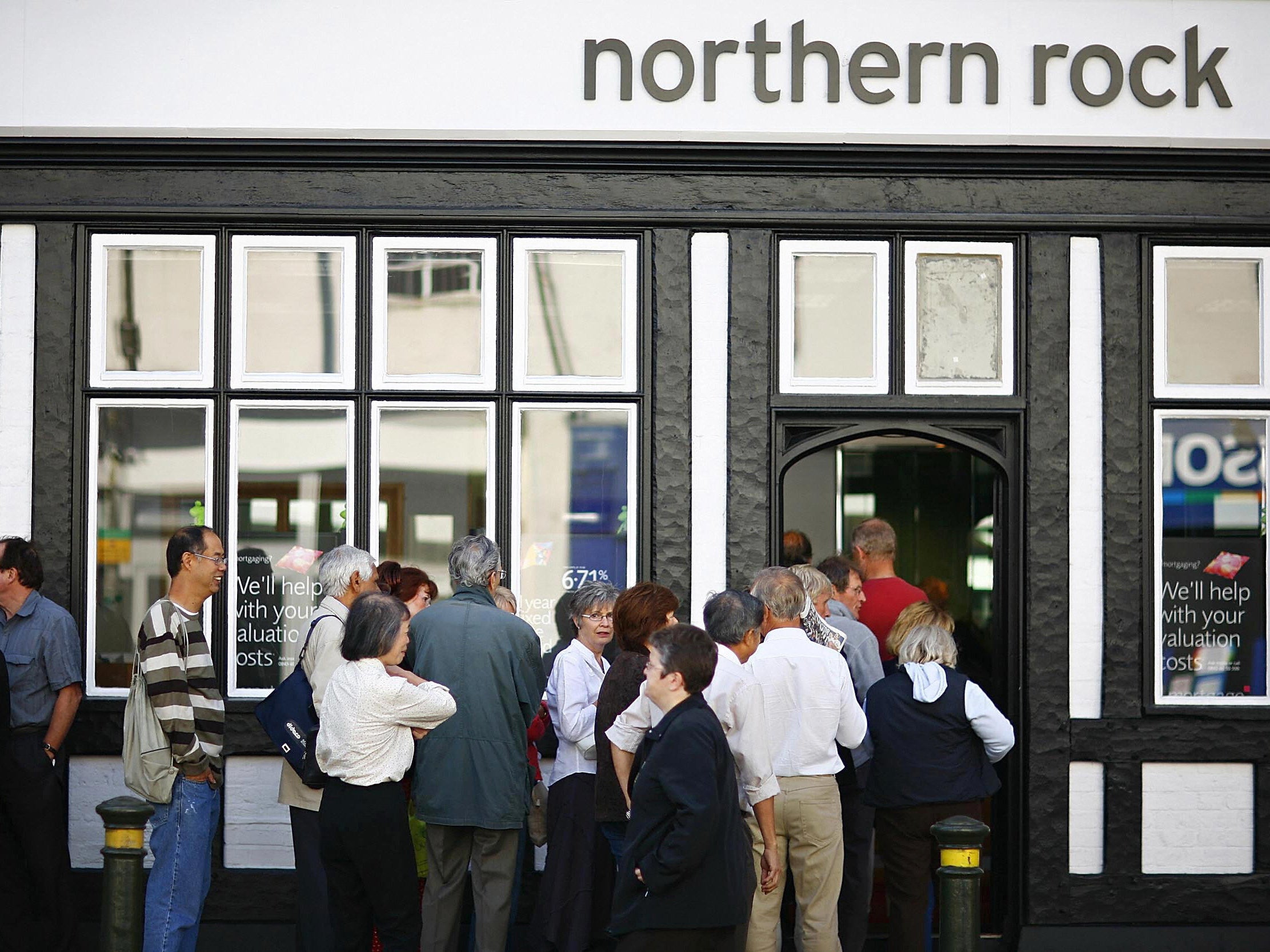A Robin Hood tax on banks could plug the NHS funding gap
A decade on from Northern Rock’s nationalisation, the impact of the events that followed and the wave of austerity policies continue to leave their mark

Your support helps us to tell the story
From reproductive rights to climate change to Big Tech, The Independent is on the ground when the story is developing. Whether it's investigating the financials of Elon Musk's pro-Trump PAC or producing our latest documentary, 'The A Word', which shines a light on the American women fighting for reproductive rights, we know how important it is to parse out the facts from the messaging.
At such a critical moment in US history, we need reporters on the ground. Your donation allows us to keep sending journalists to speak to both sides of the story.
The Independent is trusted by Americans across the entire political spectrum. And unlike many other quality news outlets, we choose not to lock Americans out of our reporting and analysis with paywalls. We believe quality journalism should be available to everyone, paid for by those who can afford it.
Your support makes all the difference.Today marks a decade since the nationalisation of Northern Rock. TV pictures of snaking lines of people outside local branches to withdraw their savings from the failing bank are seared on our memories. These are the enduring images that brought the global financial crisis into our living rooms. Ten years on, no one can deny the impact of the events that followed and the wave of austerity policies that continue to leave their mark.
Today, it would have been good to look back at lessons learned, old wounds that have long since healed, but the truth is ordinary people are struggling as hard as ever to make ends meet.
Public services have been savaged by cuts – with schools, hospitals, the police and local authorities all at breaking point. 2008 was meant to be a watershed moment for the financial sector, which caused the crash in the first place – instead they stand out as unscathed by austerity.
In a seemingly parallel universe, we’ve seen bankers’ bonuses already back to pre-crisis levels hit record highs. They’ve rewarded themselves with more than £100bn above their basic pay since the crash, during which time, public sector wages have flatlined. This week, bumper end of year results are expected for the banks. It’s a tale of two extremes.
The NHS is not simply suffering from the usual winter pressures – doctors and nurses on the frontline say they cannot remember feeling so stretched, with A&E units reporting their worst January on record. The stark reality faced by thousands of homeless people is now visible in most towns and cities across the country. Just last week, Northamptonshire Council announced they can no longer cope with increasing demands on their existing budgets going into special measures. Meanwhile, since 2008, the big four UK banks have made over £150bn in profits.
Our priorities are way out of kilter – surely it’s time to stop and reset. The Financial Transactions Tax (FTT), popularly known as the Robin Hood tax is a small levy on the enormous volume of transactions carried out everyday by finance firms, not ordinary people. Now a Labour manifesto commitment, it could generate an extra £25bn over a five-year parliament.
In the current climate, £25bn is a cash injection that’s hard to ignore. What sort of difference could this make to the desperate situation to our cash-strapped public services? The extra money from just two months of an improved FTT could plug last year’s NHS funding gap and incredibly only four days could help all those currently sleeping rough back on their feet.
Apart from the substantial revenue, the FTT has two significant benefits – creating a more stable economic system by reducing the worst kind of casino trading – the behaviour that caused the crisis in the first place. It would also give tax authorities far better oversight of financial activities, making it an important weapon in the war against tax dodging.
The long lines outside high street branches of Northern Rock have now been replaced by thousands queueing up every week outside food banks. The intervening time has been good to the banking world. So the question should be why aren’t we taxing a sector that can well afford it to benefit those hit hardest by the crisis it caused?
David Hillman is a spokesperson for the Robin Hood Tax Campaign
Join our commenting forum
Join thought-provoking conversations, follow other Independent readers and see their replies
Comments